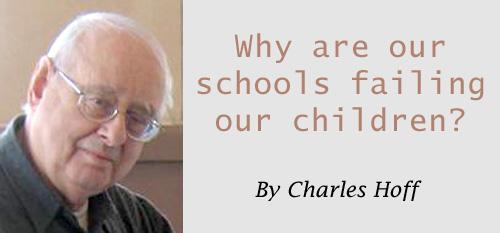When are school boards effective?
Wed, 11/04/2009
Recently the Chamber of Commerce and the local paper hosted a forum where school board candidates answered questions from the “public.” It was held at 11 am at Federal Way High School which excluded most parents and those with a job. The timing could have been much better.
To boost the attendance kids from the high school were brought in as there were probably about 7 members of the public in the audience.
There was some discussion about what the school board has accomplished in the past two years, and the incumbents spent a great deal of time explaining extensions of programs that were actually promoted by former school board members in what the incumbents characterized as “Adversarial” school boards.
Their point being that the current school board, who seems to be a very agreeable bunch, instead of “Adversarial,” was actually accomplishing “Something.”
If they have it hasn’t been done in public, in fact one of their best known accomplishments might be their restriction of public comment from their meetings. They have seemed quite unwilling to hold any open discussions about any issues.
The Washington State School Directors Association (WSSDA), an organization that every school board in the state is required to join, and pay fees, offers many coaching sessions where they instruct school board members to be “nice” and to “support” the “common good.”
It would be well to point out that more than half of the school boards in this state do not even attend WSSDA’s annual meeting and regional meetings are often canceled due to lack of interest. I remember attending one regional meeting where there wasn’t even a school board member from the hosting district in attendance!
Could this be a contributing factor leading the state to be 43rd in the nation in high school completion? Could it be that we have a great number of school board members who do not take their responsibility very seriously? I think so.
One only has to look at this election’s incumbent candidates who point out that they are not “Adversarial,” and also cannot list any accomplishments that were not started by previous “Adversarial” school boards. Feeling warm and fuzzy about our schools, when less than 50% of the students even graduate, is perhaps the best illustration of why schools “don’t work” for most students and should be for voters.
A school board president of a nearby school district once explained to their local paper why all votes at the school board meetings were unanimous. She suggested that any dissent was kept in private. One can only guess why this district isn’t held up in high regard when achievement is discussed.
One of the school board candidates brought this up in the Forum when he said that he had proposed to the school board, on several occasions, suggestions for how to improve the schools, at little or no cost, the board has refused to discuss in any of his suggestions in public. Why? These issues might be controversial and might prompt the public to attend their meetings. They might also make schools a more serious place if adopted.
Would this be an “Adversarial” discussion? Probably it would.
Would this be bad for the schools and children? I don’t think any more so than the inactivity that we have seen in our school board in the past two years. I don’t think that there has been a single decision made by the current school board that has had a direct impact in the classrooms or hallways of our schools.
In short, “The rubber hasn’t met the road.” In the words of the famous Wendy’s commercial, “Where’s the beef?” Not here! All the current board can suggest is the extension of programs that were instigated by previous boards, and that they are “warm and fuzzy.” Changes in classrooms or hallways? Not visible. Changes in achievement? None to write home about.
Is it time for a change?
Federal Way could become an attractive place for employers if it had a better school system, but this would take some changes and some would be “Adversarial” to some members of the community. Change is sometimes “hard.”
In a nation that is not anywhere near the top, internationally, and in a state that is 43rd in high school completion it might be time for some “real” changes. 45.7% of its 9th graders graduating would seem to be a rallying call for “Change!”


